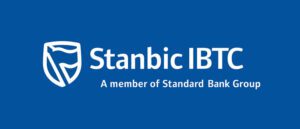
FX speculation fuelling naira depreciation – Analyst
Foreign exchange rate speculation has been noted to be fuelling depreciation of the local currency, Festus Adenikinju, a member of the monetary policy committee said in his personal statement released by the Central Bank of Nigeria (CBN).
Naira has suffered both open and behind-closed-door devaluation amidst the scarcity of inflow into the Nigerian economy. Foreign investors have remained wary of the CBN capital control measure to stem draining external reserves position.
Recently, the MSCI index told foreign investors that it is very difficult to get money out of Nigeria as the platform plans to downgrade Nigeria’s status.
Spreads between the official foreign exchange rate and the parallel market price have always given room for currency arbitrage in Nigeria while the apex bank struggles to harmonise rates.
In 2015, while the official rate was pegged at N196.5, Naira was traded at the parallel market at N268.
The official exchange rate was depreciated to N304.5 while naira was exchanged at N374. In 2017, the official exchange rate faced subtle devaluation to N305.5 and N306.5 the following year 2018.
In 2020, CBN announced an adjustment to the official exchange rate to N379.5 from N307.5 in 2019 causing a massive market stir while currency arbitrageurs cashed in on weak foreign exchange earnings into the country.
The parallel market rate was as high as N480. In 2021, the Naira exchange rate crossed the N500 mark as the CBN unified official and autonomous exchange rate as currency traders created artificial scarcity to increase spreads.
In his personal statement, Adenikinju said there is a need for a timely and orderly withdrawal of forbearance on loan restructuring granted to the banking sector.
Adenikinju noted that the growth in aggregate credit indicates that the CBN policy on Loan-to-Deposit Ratio (LDR) is working, and defaulting banks should be encouraged to keep to the LDR.
He explained further that various intervention programmes of the CBN are already providing strong support for the youths, women, and those who could not readily access the formal credit market.
Lending to households increased from N1.17 trillion in Q1 2020 to N1.22 trillion in Q1, 2021, he added. However, Adenikinju told the policy committee that there is a need to expand the Targeted Credit Facility (TCF) and the Agri-Business/Small and Medium Enterprises Investment Scheme (AGSMEIS) to ensure more Nigerians benefit from the programme.
“In addition, regular evaluation of the programmes is necessary to ensure they meet their objectives. However, there are many headwinds assailing the domestic economy,” he added.
In his personal statement, Adenikinju said domestic inflation is still unacceptably high and is putting pressure on domestic interest rates.
“It is also affecting the standard of living of Nigerians. The CBN should continue to use the various administrative tools at its disposal to control excess liquidity in the system.”
Speaking to the pressure on Naira, Adenikinju told the committee that foreign exchange rate speculations are fueling depreciation of the local currency in all the exchange rate windows.
At the time, he cited that external reserves declined from US$34.29 billion 20 in April 2021 to US$34.13 billion in May 2021. However, the nation’s foreign currency has nosedived significantly to $33.12 billion due to the scarcity of foreign currency inflow.
“We also continue to experience dual deficits in the balance of payment. There is a need for a major boost to Government revenue to reduce the rising fiscal deficit and narrowing of fiscal space,” he said.
In his statement, he said the subsidy on petroleum products and the poor performance of refineries are issues that need immediate attention.
“As a country, our excessive dependence on oil for revenue and foreign exchange sustenance is no longer tenable in the medium and long term.
“We need to diversify the economy and revenue base of the economy to reduce our exposure to external shocks as well as prepare the economy for the global shift from fossil fuel to a green economy,” Adenikinju said at the policy committee.
“It should not be business as usual for our economic managers. The economy also needs a strong buffer to mitigate external volatility.”
Citing the Economic Report prepared by Staff of the Bank, Adenikinju said the economy grew by 0.51% in Q1, 2021, up from 0.11% in Q4, 2020. The sectors largely accounting for the growth were information and communication, manufacturing, and agricultural sector.
He said the economy also benefitted from relatively high oil prices, which hovers in the high $60s/per barrel, and is significantly higher than the 2021 FGN budget benchmark price.
“The growth in the manufacturing sector at 3.2% is particularly impressive, given the negative performance of the sector in recent times. Inflation also decelerated marginally from 18.17% in March 2021 to 18.12% in April 2021.
“Both headline and food inflation show trend reversal from the March level. However, core inflation ticked up marginally from 12.67% in March 2021 to 12.74% in April 2021.
“This suggests to me that inflation is probably turning the corner. The GDP growth and inflation numbers signify that the economy is responding to the CBN intervention programmes,” he stated.



